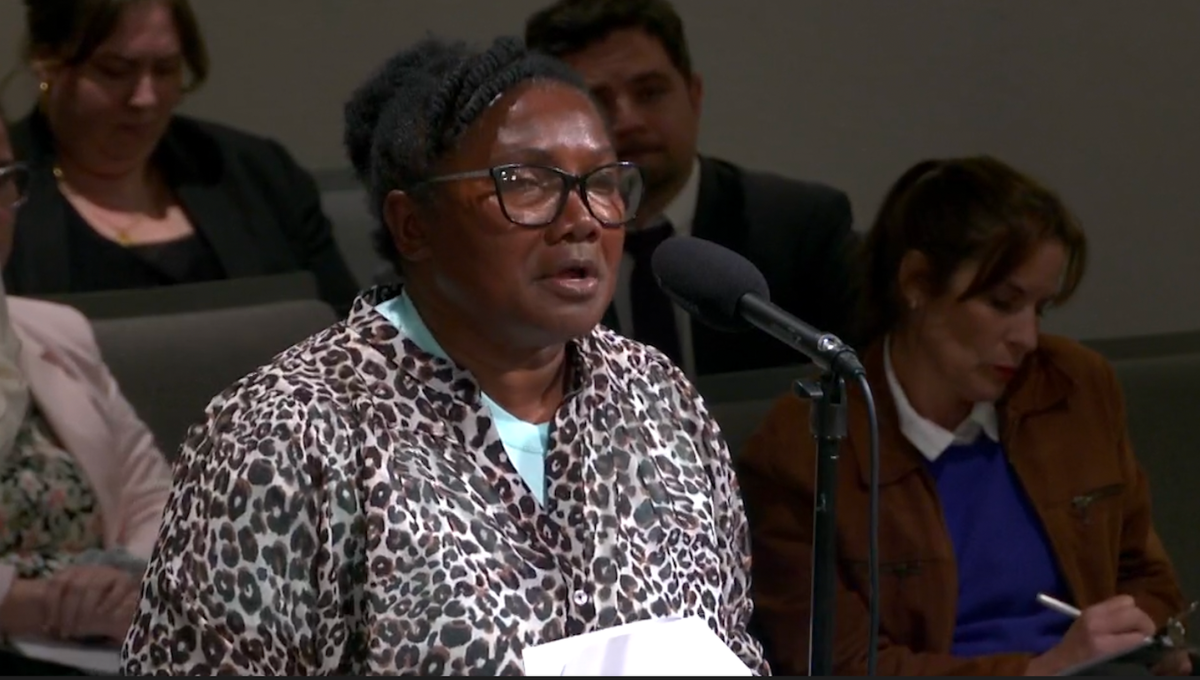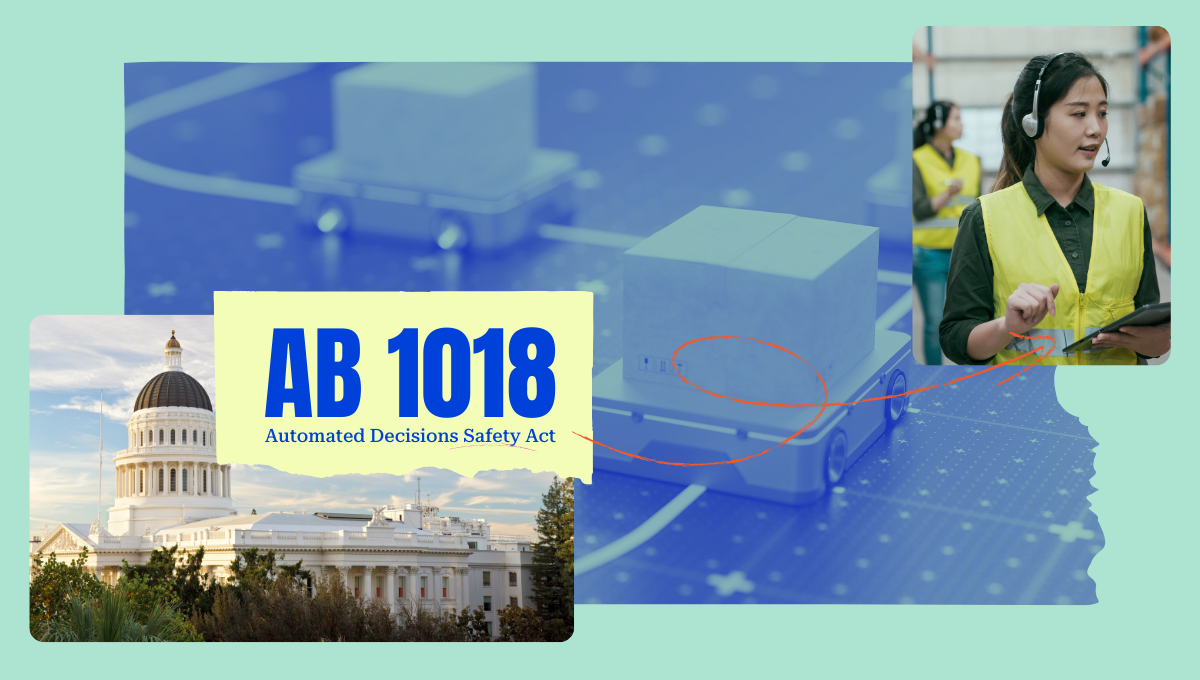4 Reasons Why Article 34 Sucks
What if I told you that 72 years ago, California amended its legal code to create the biggest constitutional barrier to affordable housing in the country? If I said that this barrier, borne out of racism, classism, and the Red Scare, has enshrined segregation and cemented our housing crisis to this very day?
I wish I could tell you it’s just a (bad) joke, but it’s no laughing matter. Article 34 has shaped our housing crisis for more than half a century. It has prevented low-income housing from being built across the state and will continue to do so if we don’t step in and repeal the damn thing.
What is Article 34?
First, a primer. Article 34 requires voter approval before public or low-income housing can be built in a community. Californians passed the bill in 1950, under the guise of democratic control over taxpayer projects. The real estate industry (who stood to benefit from blocking low-income housing) likened it to other publicly-funded infrastructure, like schools and roads. Since it was the 50s, they were upfront about their racist motivations: they appealed to white, wealthy homeowners and their fears about integrating their neighborhoods. They warned that public housing was evil socialism and that requiring voter approval for public and low-income housing would protect the capitalist values they held so dear.
To the untrained eye, requiring voter input on governmental affairs can seem like a good, democratic thing to do. But in this case, voter approval can create an insurmountable barrier to affordable housing, especially in places where it’s sorely lacking. Here are four reasons why Article 34 sucks and should be repealed.
Reason 1: Article 34 has prevented low-income housing construction for 70 years.
In order to address our housing crisis, prevent displacement, and ensure people can afford to live here, we need to do three things: first, protect existing tenants, second, preserve existing affordable housing, and finally, produce new housing—at all levels of affordability. According to the state Regional Housing Needs Allocation (RHNA), we’re actually on track for building above moderate-income (aka market rate) homes. Where we’re falling short is building housing for anyone with low to moderate incomes—affordable housing.
There’s a lot that goes into why it’s hard to build affordable housing, but a huge factor is that we’re simply not allowed to. Because of Article 34, it’s illegal to build the publicly funded low-income housing we need when local voters decide against it.
The proof is in the pudding—between 1950 and 1969, California voters rejected almost half the public housing proposals set before them, around 15,000 units. Many housing agencies didn’t even submit their proposals to the electorate, worried that their plans would be rejected.
Cities have since created workarounds to Article 34, proposing bulk amounts of public or low-income housing units to be approved for the years to come. But when cities hit their cap, they have to wait for the next election to beg for more.
You might be thinking, why wouldn’t we all want to vote for affordable housing? To be frank, the reason why voters today might block affordable housing is the same reason why Article 34 passed in the first place: because wealthy, white homeowners see affordable housing as a threat to their property values and the racial makeup of their neighborhoods.
Reason 2: Article 34 enshrines segregation in our wealthiest, whitest communities.
Article 34 was borne out of resistance to a public housing project in Eureka, California, with wealthy, white homeowners wanting no part in the New Deal-era push to build affordable housing. These homeowners didn’t want anyone poor (and/or of color, for that matter) to be living anywhere near them. Obviously for the 50s, this sort of racist and classist behavior was expected, mostly socially accepted, and completely legal.
As the civil rights movement gained racial justice reforms in housing over the next few decades, those who were invested in the whiteness of their communities relied on more covert, de facto racial discrimination like single-family zoning—and repeated denial of public and low-income housing in their neighborhoods.
Think about it: if you live in a wealthy, white neighborhood and you want to keep it that way, you just ensure that you continue to price out poor people of color. If you bar any affordable housing initiatives, then the wealthy enclave you’ve created and benefited from (with no small help from white-only loans and subsidized mortgages) remains that way.
In a nutshell: Article 34 gives NIMBYs (the Not in My Backyard folks) the power to veto any low-income people (disproportionately Black and brown people) from moving into their neighborhood. Though the phrase “local control” may sound democratic, it plays out as racialized control over wealth and resources.
Reason 3: Article 34 set a dangerous precedent, paving the way for classist policies across the country.
The thing that’s so insidious about Article 34 is that because it focuses on class, not race, it managed to slip through all of the housing racial justice reforms made in the Civil Rights era. After the Fair Housing Act of 1968 banned racial discrimination in housing, a lawsuit was filed against Article 34, arguing that it violated the U.S. Constitution’s Equal Protection Clause by denying poor people the right to housing.
This case was brought to the U.S. Supreme Court, which defended Article 34’s constitutionality because it didn’t discriminate against a single racial group. In a word: it’s not racist to discriminate against poor Black and brown people if you’re discriminating against all poor people!
This decision had a devastating ripple effect; federal and state policies that were biased against poor people suddenly had precedent supporting them. President Nixon used the logic of the decision to declare that the federal government would not conduct economic integration in its reckoning of racial segregation. The relationship between whiteness and generational wealth, especially in housing, was conveniently overlooked.
Reason 4: Article 34 makes it more expensive to build affordable housing.
Because of the voter referendum on affordable housing, those who want to build it have to twist and turn their way into getting projects completed. Affordable housing developers must instead turn to private developers to squeeze in some affordable units, rely on federal or state tax credits, or get some of the lump-approved housing units in their plan.
As it turns out, all this finessing adds up. Legal and consulting bills can cost tens of thousands of dollars, which combined with already tight margins, can mean the costs don’t add up and the housing doesn’t get built. We should be finding ways to reduce the costs of building affordable housing, not hiking them up.
What can we do? Pass SCA 2!
There’s no question that Article 34 has got to go. Even though there’s been resistance to repealing it in the past (three failed attempts), this year is the year we can finally repeal this racist relic.
For the first time in more than 70 years, public opinion has shifted enough in favor of affordable housing that this time, a repeal could work. SCA 2, authored by State Senators Ben Allen and Scott Wiener, would give us the chance to repeal Article 34 on the November ballot.
Since 1950, Article 34 has abused our democratic structure to install a racist, classist barrier to affordable housing for all. There’s something extra satisfying about using our vote to dismantle this barrier and give us the chance to tackle our housing crisis without barriers that hinder progress.
How you can help
SCA 2 proposes a repeal of Article 34 from the California Constitution; once passed in the Legislature, it will be placed on the ballot for voters to approve.
SCA 2 is currently awaiting passage in the CA Legislature, and then it’ll be in our hands—the hands of voters. In order for this repeal to happen, we need a massive effort to educate voters on what Article 34 is, why it sucks so much, and why we need to get rid of it.
Before a full campaign is launched, we need you to spread the word. Share this article with your friends, talk to your parents about it over dinner, and shine some light on this outdated, racist policy. When the time comes, we’ll need all the help we can get to win in November!





